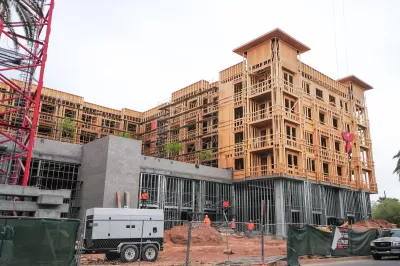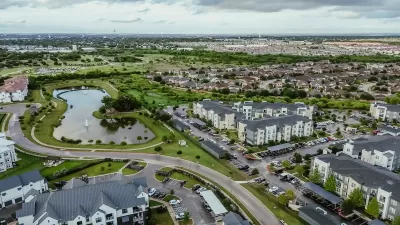With the housing shortage only getting worse, updates to a key federal program could help.

In a piece published by the Federation of American Scientists, Stanley Chang outlines some policy recommendations that would improve the efficacy of the Low-Income Housing Tax Credit (LIHTC) program, a federal program that “has been the backbone of new affordable housing construction nationwide for the last 37 years.”
According to Chang, “Existing LIHTC incentives for nonprofits do not ensure that profits are recycled to build more housing, because many nonprofits have other, nonhousing missions.” Thus, “Incentivizing organizations to use their profits to build more housing will enable LIHTC to create much more housing in the long term.”
Chang recommends amending the federal code governing the program to require entities participating in the program to use profits on housing and offer preference to state and local governments. “If LIHTC funds created projects that recycled their profits into building more housing, LIHTC would create a virtuous cycle to build more and more housing, moving the needle without additional expenditure of taxpayer funds.”
FULL STORY: Low-Income Housing Tax Credit Policy Recommendations

Maui's Vacation Rental Debate Turns Ugly
Verbal attacks, misinformation campaigns and fistfights plague a high-stakes debate to convert thousands of vacation rentals into long-term housing.

Planetizen Federal Action Tracker
A weekly monitor of how Trump’s orders and actions are impacting planners and planning in America.

San Francisco Suspends Traffic Calming Amidst Record Deaths
Citing “a challenging fiscal landscape,” the city will cease the program on the heels of 42 traffic deaths, including 24 pedestrians.

Defunct Pittsburgh Power Plant to Become Residential Tower
A decommissioned steam heat plant will be redeveloped into almost 100 affordable housing units.

Trump Prompts Restructuring of Transportation Research Board in “Unprecedented Overreach”
The TRB has eliminated more than half of its committees including those focused on climate, equity, and cities.

Amtrak Rolls Out New Orleans to Alabama “Mardi Gras” Train
The new service will operate morning and evening departures between Mobile and New Orleans.
Urban Design for Planners 1: Software Tools
This six-course series explores essential urban design concepts using open source software and equips planners with the tools they need to participate fully in the urban design process.
Planning for Universal Design
Learn the tools for implementing Universal Design in planning regulations.
Heyer Gruel & Associates PA
JM Goldson LLC
Custer County Colorado
City of Camden Redevelopment Agency
City of Astoria
Transportation Research & Education Center (TREC) at Portland State University
Jefferson Parish Government
Camden Redevelopment Agency
City of Claremont





























